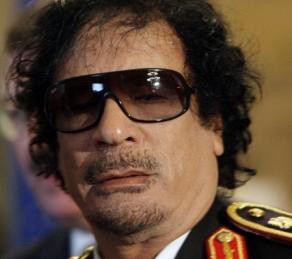Behind the Forced Regime Change in Libya

London, Paris and Washington could not allow a ceasefire because it would have involved negotiations, first about peace lines, peacekeepers and so forth, and then about fundamental political differences. And all this would have subverted the possibility of the kind of regime change that interested the Western powers. The sight of representatives of the rebellion sitting down to talks with representatives of Gaddafi’s regime, Libyans talking to Libyans, would have called the demonisation of Gaddafi into question. The moment he became once more someone people talked to and negotiated with, he would in effect have been rehabilitated. And that would have ruled out violent — revolutionary? — regime change and so denied the Western powers their chance of a major intervention in North Africa’s Spring, and the whole interventionist scheme would have flopped. The logic of the demonisation of Gaddafi in late February, crowned by the referral of his alleged crimes against humanity to the International Criminal Court by Resolution 1970 and then by France’s decision on 10 March to recognise the NTC as the sole legitimate representative of the Libyan people, meant that Gaddafi was banished for ever from the realm of international political discourse, never to be negotiated with, not even about the surrender of Tripoli when in August he offered to talk terms to spare the city further destruction, an offer once more dismissed with contempt. And this logic was preserved from start to finish, as the death toll of civilians in Tripoli and above all Sirte proves. The mission was always regime change, a truth obscured by the hullabaloo over the supposedly imminent massacre at Benghazi.
